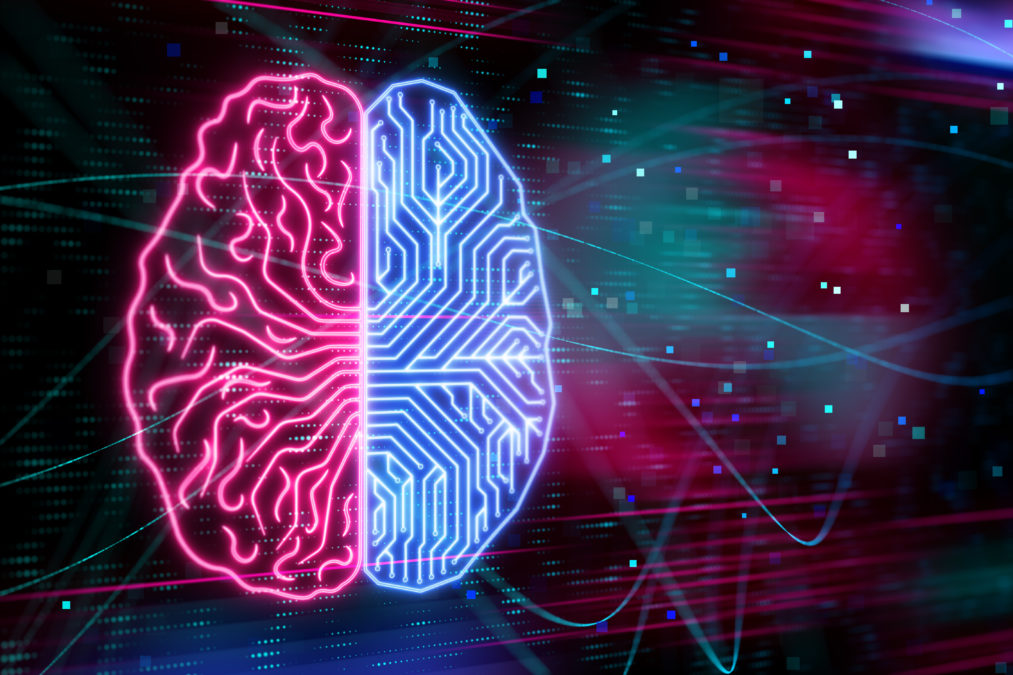What is artificial intelligence?
This question and its answer are hotly debated. In many minds, the idea of artificial intelligence surrounds a free-thinking, aware computer system — that is a long way off, apparently.
In the business community, ‘artificial intelligent’ solutions are marketed at an increasing rate, with every offering or service now including ‘AI or machine learning capabilities’. In the business sense, artificial intelligence is a computer systems able to perform tasks normally requiring human intelligence, such as visual perception, speech recognition, decision-making and translation between languages.
So, what is machine learning?
“Machine learning is part of the general field of artificial intelligence,” according to Derek Lin, chief data scientist at Exabeam. “It uses statistical techniques to allow machines to learn without being explicitly programmed. There are two forms of machine learning, supervised and unsupervised.”
“In supervised learning, the machine learns from a data set that contains inputs and known outputs. A function or model is built that makes it possible to predict what the output variables will be for new, unknown outputs. In unsupervised learning, the system learns from a dataset that contains only input variables. There is no correct answer, instead the algorithm is encouraged to discover new patterns in the data.”

Why are businesses scrambling to offer AI/machine learning?
Businesses are increasingly needing to offer programmes that harness AI, ahead of traditional programmes.
“Without AI that leverages data to develop insights or predictive analytics, programmes traditionally rely on human intuitions to manually craft rules for decision making,” explains Lin.
These traditional, human-led programmes are prone to errors and failures, because of human biases and lack of knowledge. They are the past.
Investing in artificial intelligence: What businesses need to know
“On the other hand, AI-based programmes drive results by automatically exploring and quantify data so that the outputs are objective and quantifiable. In retail, programme designers have taken the AI-based approach to its fullest in automated targeted advertising to optimise their advertising dollars,” says Lin.
“In security, the use of manually crafted correlation rules and signature-based approaches are being replaced by AI-based methods that provide granular monitoring of individual user activity. In medicine, AI-based image recognition is replacing or complementing human interpretation of radiology images.”
How difficult is it to design a programme with AI capabilities, compared with traditional programmes?
Perhaps obviously, “designing a programme with AI capacities requires more human and infrastructure investments than traditional programmes,” according to Lin.
“Data scientists and domain experts must work together to teach and show each other the possibilities for developing solutions. An infrastructure supporting volumes of data common in the Big Data era is required to support machine learning activities. While these essential investments are necessary, in my experience, the success of AI-based programmes in enterprises also hinges on the culture and vision from the top management. A data-driven corporate mentality, along with the necessary investments, create AI possibilities in programmes.”
What is Data Science?
Data Science is a new discipline that leverages scientific and mathematical analysis of data sets, as well as human understanding and exploration, to derive business insights from big data, according to Lin.
What’s the deal with cyber security?
As part of Information Age’s Artificial Intelligence Month and Cyber Security Month, it has become clear that artificial intelligence is crucial for the future of the cyber security industry. Most, if not all vendors offer a form of ‘artificial intelligence, machine learning or data science’ in their solutions. Customers now expect it. The old way is dead.
Lin explains that “cyber security solutions to detect threats used to rely on signature-based blacklisting or correlation rules. These solutions have long been inadequate.”
Cyber security and AI predictions 2018
“These days, Data Science plays a significant role in areas from endpoint protection to insider threat detection. This is particularly true in the area of user or entity behaviour monitoring, where each user or entity’s current activity is constantly being monitored against its historical profile (or normal behaviour). This type of proactive monitoring is impossible without an automated data-based analytics approach afforded by Data Science.
What’s the biggest advancement these technologies have provided to the cyber security industry?
“In addition to user and entity behaviour analytics – where machine learning has shined – a big advancement in network traffic or malware binary detection is deep learning (a machine learning framework),” continues Lin.
“Deep learning is the state-of-the-art technology used in image that enables driverless navigation, or in natural language processing that enables automated speech recognition. The same technology is now applied to analyse network packets and binary executable files, looking for clues in packet or byte streams that are impossible to identify with human eyes.”










